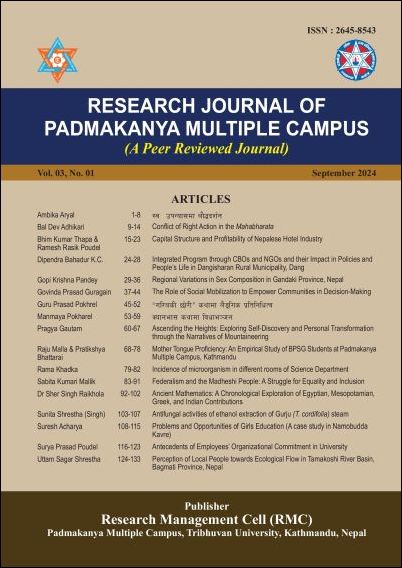The Role of Social Mobilization to Empower Communities in Decision-Making
DOI:
https://doi.org/10.3126/rjpkmc.v3i1.71897Keywords:
community, decision making, governance, participation, mass conscientizationAbstract
This paper draws on practical experiences gained from grassroots engagement and policy advocacy to explore the role of social mobilization in enhancing people's participation in decision- making processes. It examines community practices that influence various aspects of people's lives. The core questions addressed include the definition of social mobilization, its rationale, methods employed, and its overarching purpose. At its heart, mobilization is a facilitated process utilizing diverse tools and methods to achieve participation as its ultimate goal.
The paper emphasizes that "every person is political," highlighting the importance of accommodating diverse societal views, needs, and cultures in social mobilization efforts. It underscores the contextual and non-linear nature of mobilization, which varies across different segments of society. Furthermore, the long-term impact of mobilization is stressed, affecting broader spheres such as mass conscientization and policy governance over time.
Overall, the paper elucidates how social mobilization, through its multifaceted approach, strives to foster inclusive decision-making processes by empowering communities and amplifying their voices effectively. The role of social mobilization in Nepal’s decision-making processes has been significantly influenced by the Civil Code of 2074 and other related policies. The achievements in this area demonstrate progress toward more inclusive and participatory governance. However, continued focus on addressing implementation challenges and enhancing community capacity remains crucial for realizing the full potential of these legal and policy frameworks.




